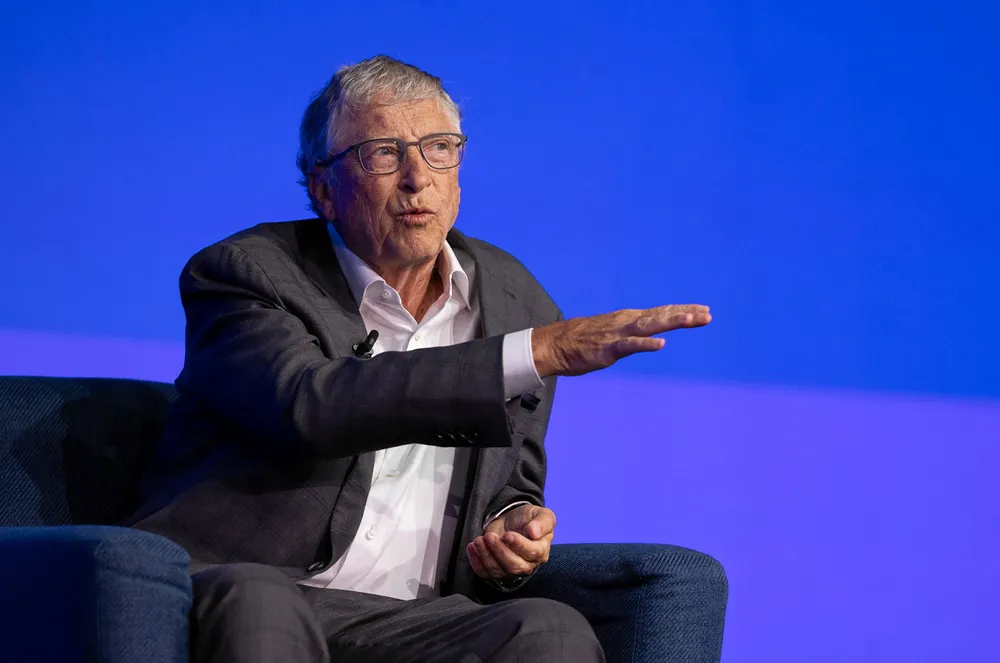Bill Gates warns against 'hey, get out of our way' attitude to energy transition
Cleantech and renewable energy sectors must avoid picking fights with other interest groups, including farmers, warned Gates, stressing need for political consensus

Microsoft and Breakthrough Energy founder Bill Gates has warned that the cleantech revolution will involve “very difficult trade-offs” with shorter-term events like the war in Ukraine, but must avoid trying to steamroll other concerns.
Gates was speaking at the opening of a London summit organised by his cleantech innovation vehicle, Breakthrough Energy, which provides financial and other support to start-ups in the sector.
Gates said that the cleantech industry must “emerge as having a voice, a clear voice” but also be “responsive to the pushback” that it faces.
He cited instances such as where policymakers have for example tried to force farmers to buy heat pumps to “continue what they’re doing." Dutch farmers recently successfully fought back against such legislation.
Gates warned about creating a “conflict where we say ‘Hey, what do you care about – farmers or cleantech?’ And I don't think we would win.”
There needs to be a “type of dialogue where it's not just the cleantech industry saying, ‘Hey, get out of our way,’” he said.
The cleantech sector must rather “maintain a sense of political consensus, understanding that money is very short.”
Gates cited high interest rates and debt levels, along with necessary increases in defence and healthcare spending, as financial factors that will put a squeeze on the financing of the energy transition.
“Sometimes the climate movement is like, ‘Okay, there must be another place for money to come from,’” he said. “And there's not. It involves very difficult trade-offs.”
For occurrences like the war in Ukraine, he said “peoples’ timeframe is more short term.”
“Given these constraints”, figuring out how to make progress in the energy transition’s “bold mission” is an important challenge, he added.
Looking to the future, he said that AI will be increasingly important in helping to optimise cleantech innovation, whether that is electricity grid modelling or generating more stable nuclear fusion reactions.
There will also be “political uncertainty,” with governments coming in whose “policies relative to climate will be somewhat more or less favourable.”
The geopolitics will be “very complex,” with issues like the “willingness to take low cost products out of China and take advantage of those” balanced against concerns around the effect of this on domestic job markets.
Ultimately the success of the energy transition will be “measured by scale,” Gates said. The amount of emissions abated is the "final grade.”
The amount of emissions “abated with our technology so far is quite small,” he said. By 2040, it has to be “absolutely gigantic.”
(Copyright)